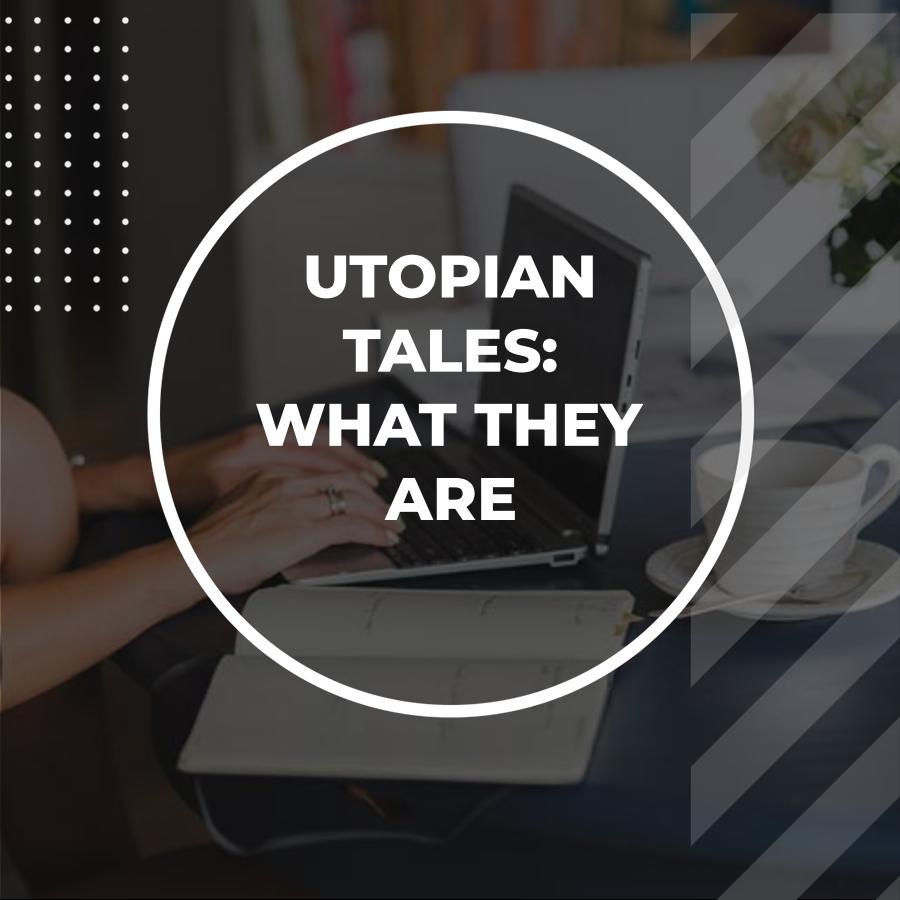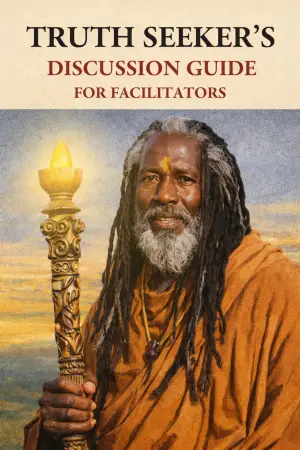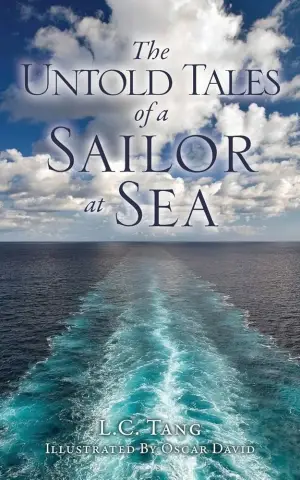Utopian fiction often confuses both readers and writers. Stories about social constructs, ideal societies, and visions of perfection can be tough to explain or understand. In its essence, utopian fiction explores the concept of a flawless society, reflecting humanity’s greatest hopes, fears, and aspirations.
Table of Contents
What is Utopian Fiction?
Utopian fiction refers to a genre of literature that presents an imagined society that embodies perfection in social, political, and moral terms. This genre allows authors to explore the dynamics of human relationships in an idealized setting while grappling with the challenges of achieving such a society.
The Historical Roots of Utopian Fiction
Utopian fiction has deep historical roots, tracing back to thinkers and writers who have envisioned what a perfect society might look like. The term “utopia” was coined by Sir Thomas More in his 1516 work, “Utopia.” More describes an island society that practices communal ownership of property, religious tolerance, and values education. This foundational work set the stage for countless innovations in utopian thought, establishing a framework for ideal societies that has influenced generations of writers.
In the late 19th and early 20th centuries, writers began to craft more diverse interpretations of utopian societies. Works such as Edward Bellamy’s “Looking Backward” and H.G. Wells’ “A Modern Utopia” expanded utopian narratives beyond individual vision to explore societal structure, technological advancements, and social justice.
Key Characteristics of Utopian Fiction
Utopian fiction often shares several defining characteristics, which make it distinct from other literary genres. These elements invite readers to engage critically with the narrative.
Ideal Society
The hallmark of utopian fiction is the portrayal of an ideal society. Authors construct worlds that embody harmony, equality, and justice. In The Dispossessed by Ursula K. Le Guin, for example, readers witness the contrasting societies of Anarres and Urras, one rooted in anarchism and the other in capitalism. These settings invite audiences to consider the advantages and drawbacks of each system, thus engaging in a deeper discussion of societal constructs.
Social Commentary
Utopian fiction serves as a platform for commentary on contemporary issues. Writers often highlight flaws in existing societies and propose alternatives. In Aldous Huxley’s Brave New World, the portrayal of a technologically advanced society raises questions about consumerism and the sacrifice of individuality for collective happiness. By offering these societal critiques, the authors urge readers to question the future path of their own communities.
Visionary Technology
In many utopian narratives, technology plays a pivotal role. It has the potential to solve societal problems and elevate the human condition. Consider the world depicted in The Matrix by the Wachowskis, where technology creates an illusion of reality while posing ethical questions about free will and control. These narratives prompt readers to ponder the implications of technological advancement on society.
The Role of Government and Structure
Utopian fiction often explores the ideal forms of governance. Writers examine how various political systems shape harmony or unrest in society. In The Giver by Lois Lowry, a seemingly perfect society strips away individuality and emotional depth in exchange for control and uniformity. This example showcases how the pursuit of an ideal can inadvertently lead to dystopian conditions, raising questions about liberty and choice.
Distinctions Between Utopian and Dystopian Fiction
Understanding utopian fiction also means recognizing its counterpart: dystopian fiction. Whereas utopian narratives explore ideal societies, dystopian tales present nightmarish interpretations of societal flaws, often framed as cautionary tales. Distinguishing the two can help readers grasp the overarching themes.
Ideal versus Nightmare
In utopian fiction, the protagonists may strive toward perfection and unity. In contrast, dystopian stories often feature protagonists who resist oppressive regimes or navigate chaotic worlds. Works like George Orwell’s “1984” and Aldous Huxley’s “Brave New World” serve as stark reminders of the extreme consequences of a society stripped of individual freedoms for the sake of collective stability.
Cautionary Applications
Utopian fiction can function as a lens through which to critique reality. Authors use portrayals of ideal societies to expose societal flaws or shortcomings. Conversely, dystopian fiction serves as a warning, detailing grim futures based on contemporary issues. Margaret Atwood’s “The Handmaid’s Tale” combines these approaches, using her imagined world to show how societies that claim to seek perfection can slip into oppression.
Psychological and Sociological Perspectives
Utopian fiction serves as fertile ground for psychological and sociological exploration. Authors often explore how these ideal societies impact human behavior, mental health, and social dynamics.
The Role of Individual Agency
Many utopian works examine individual agency within a larger group. For example, in “Brave New World,” societal happiness is maintained through conditioning and a lack of personal choice. This approach raises questions about free will, happiness, and the impact of societal norms on individual identity.
Group Dynamics and Conformity
Writers often grapple with the concept of conformity versus individuality. In “Gathering Blue,” Lois Lowry explores a society that values practical skills over creative thinking. This story prompts questions about what sacrifices individuals must make in pursuit of a perfected society. The implications of conformity pose significant questions about whether true utopia can exist without suppressing individual expression.
Structural Elements of Utopian Fiction
Authors rely on various structural elements and techniques to convey the complexities of utopian societies clearly.
World-Building
World-building is paramount in utopian fiction. Authors create detailed settings that offer readers a glimpse into the societal mechanisms at play. The intricate constructs often highlight real-life problems by providing a clear contrast. “The Giver” by Lois Lowry exemplifies this with its carefully controlled environment, which unfolds to reveal the darker sides of an ostensibly perfect community.
Narrative Perspective
Narrative perspective can significantly influence how readers perceive utopian societies. First-person narratives often provide intimate, personal accounts, enhancing emotional engagement with societal issues. Conversely, third-person narratives enable broader examinations of the utopian vision and its pitfalls.
Symbolism and Allegory
Utopian fiction frequently employs symbolism or allegory to deepen thematic exploration. Works such as “The Giver” utilize color as a symbol, representing heightened emotions, individuality, and understanding. Such elements enable readers to engage with the text on multiple levels, enriching their comprehension of the society in question.
Contemporary Examples of Utopian Fiction
Utopian fiction has grown over time, now reflecting current problems and perspectives. Contemporary authors often explore pressing concerns about the environment, social justice, and technology through stories in this genre.
The Ministry for the Future by Kim Stanley Robinson
In this novel, Robinson imagines a near-future where a global organization tackles climate change through innovative practices and radical cooperation among nations. The book features a range of characters and explores economic, political, and ecological solutions, all while remaining hopeful about humanity’s capacity to adapt and evolve. This optimistic perspective in storytelling encourages readers to imagine realistic solutions to today’s challenges.
Red Mars by Kim Stanley Robinson
Also by Robinson, Red Mars serves as the first installment in a trilogy about terraforming Mars. While the novel illustrates the challenges of creating a new society, it emphasizes the collaboration and the responsibility humans have toward both one another and the environment. The narrative encourages readers to consider the relationship between technology and sustainable living, highlighting the importance of ethical considerations in the quest for utopia.
The Power by Naomi Alderman
In The Power, Alderman overturns traditional gender roles by giving women the ability to produce electrical energy. This alteration in power dynamics prompts society to shift in unexpected ways, highlighting themes of gender and control. Alderman’s exploration of what could happen if women wielded military force encourages readers to analyze the fragile nature of societal norms and the possibilities for a redefined utopia.
Utopian Fiction Across Different Media
Utopian themes are not exclusive to literature. The genre spans various forms of media, each contributing unique perspectives on the quest for ideal societies.
Film and Television
Films such as Tomorrowland reflect utopian ideals through visual storytelling. They convey messages about innovation, sustainability, and the power of human imagination. Likewise, series like Star Trek also imagine a future where people have moved past prejudice and choose exploration and cooperation instead. By depicting a hopeful trajectory for society, these narratives inspire viewers to dream big.
Graphic Novels
Graphic novels have also embraced utopian themes, blending visual artistry with narrative depth. Titles like Saga by Brian K. Vaughan explore intergalactic conflicts fueled by love, war, and social inequality. Through their rich illustrations and character development, graphic novels invite readers to understand complex social issues in a visually engaging way.
Video Games
Video games, such as Civilization and Fallout, incorporate elements of utopia and dystopia, allowing players to shape their societies. In Civilization, players strategize to create a flourishing civilization, while Fallout confronts the consequences of societal collapse. This interactivity enables players to engage directly with the themes of governance and societal structure, making the exploration of utopian ideas a personal experience.
Criticism of Utopian Fiction
While utopian fiction invites imagination and exploration, it is not without its critiques. Critics argue that utopian narratives can be overly idealistic and serve to distract from tangible societal issues rather than inspire change.
Idealism versus Realism
Critics often argue that idealism showcased in utopian fiction can mask deep-rooted societal flaws. The visions depicted may seem like unattainable fantasies rather than actionable blueprints for progress. This criticism emphasizes the need for practicality in addressing real-world complications, suggesting that narratives must also confront imperfections rather than solely aspire to perfection.
The Potential for Authoritarianism
Another common critique is that utopian ideals can lead to authoritarian regimes, where the pursuit of an ideal becomes justification for suppression. As seen in numerous dystopian texts, the quest for a perfect society can lead to a loss of personal freedoms, resulting in dystopian realities rather than utopian outcomes.
The Evolution of Utopian Fiction in Modern Contexts
The genre reflects society’s shifts and adapts to current topics that matter to readers today. Current utopian works frequently challenge existing norms surrounding gender, race, and identity, revisiting age-old questions about what it means to build a better society.
Intersectionality in Utopian Narratives
Modern authors are consciously incorporating intersectionality within their works, addressing various forms of inequality. N.K. Jemisin’s “The Fifth Season” creates a society where race, gender, and environmental catastrophe shape both authority and relationships. This portrayal expands the notion of utopia beyond singular ideals, acknowledging the complexities faced by diverse communities that seek inclusivity.
Reimagining Cultural Narratives
Writers also reimagine cultural narratives through utopian fiction. For instance, stories that focus on indigenous cultures and their visions for ideal societies provide a counter-narrative to dominant Western paradigms. Such narratives invite readers to consider alternative ways of living and organizing community structures.
The Future of Utopian Fiction
The genre of utopian fiction will continue adapting to contemporary society’s challenges and aspirations. As new issues emerge, authors will use their creativity to explore fresh visions of ideal societies. Whether through literature, film, graphic novels, or gaming, the examination of utopian ideals fosters dialogue about what it means to strive for a better future.
Additional Information
Utopian fiction often holds intricate layers that many readers overlook.
- Origin of the Term: The term “utopia” comes from Sir Thomas More’s 1516 book, which combines the Greek words for “no place” (ou) and “place” (topos). This word choice indicates that a true utopia may never actually exist.
- Political Commentary: Many utopian novels serve as a critique of current societal structures, often highlighting flaws in governance, economics, or social norms within the imagined perfect societies.
- Dystopian Twists: Utopian fiction often transitions into dystopian tales. Writers use their vision of perfection to explore how ideal societies can devolve into oppressive regimes, reflecting real-world anxieties.
- Cultural Reflection: Utopian settings often reflect the hopes and worries of the era in which writers create them. These imagined worlds show how society’s values influence each writer’s vision of perfection.
- Ecotopian Vision: Some utopian fiction focuses specifically on environmental harmony, advocating for sustainable living and a return to nature. These “ecotopias” present societies that value ecological balance and support practices that protect the planet.
- Life Beyond Earth: Utopian themes have also made their way into science fiction, exploring notions of advanced civilizations on other planets, where humanity has overcome its flaws entirely.
- Influential Thinkers: Utopian fiction has influenced real-world thinkers, inspiring political movements and philosophies. Notable figures such as Karl Marx drew inspiration from utopian ideals while formulating their theories.
- Diversity of Utopias: Not all utopias are idyllic and harmonious. Some authors envision complex societies where human flaws still exist, challenging the notion of what it means to be “perfect.”
- Religion’s Role: Many utopian narratives incorporate religious elements, suggesting that a perfect society can only exist in a world aligned with divine principles or moral codes.
- Philosophical Underpinnings: Utopian fiction features characters debating topics such as ethics, governance, and the nature of happiness. These stories invite readers to question their own ideas and examine the systems that shape society.
Frequently Asked Questions (FAQs) Related to Utopian Fiction
Q. What is utopian fiction?
A. Utopian fiction is a genre of literature that explores ideal societies where politics, culture, and life are perfect or nearly perfect. These stories often address social, political, and economic issues while presenting a vision of a better world.
Q. Who coined the term “utopia”?
A. The term “utopia” was coined by Sir Thomas More in his 1516 book titled “Utopia,” which describes an imaginary island society with seemingly perfect social, legal, and political systems.
Q. What are the common themes found in utopian fiction?
A. Common themes include social harmony, equality, scientific advancements, environmental sustainability, and the quest for happiness. Many stories explore the implications of achieving a perfect society and what sacrifices come with it.
Q. Can you give examples of popular utopian fiction?
A. Notable examples include “Looking Backward” by Edward Bellamy, “Brave New World” by Aldous Huxley, and “The Dispossessed” by Ursula K. Le Guin. Each book presents a distinct perspective on utopian societies.
Q. How does utopian fiction differ from dystopian fiction?
A. While utopian fiction envisions ideal societies, dystopian fiction presents societies that are flawed or oppressive, often highlighting the darker aspects of human nature and warning against potential futures.
Q. Are there real-world examples of utopian communities?
A. Yes, there have been various real-world attempts at creating utopian communities, such as the Oneida Community in the 19th century and more contemporary eco-villages. These experiments often face challenges in sustaining their ideals.
Q. What do authors hope to achieve by writing utopian fiction?
A. Authors of utopian fiction aim to inspire readers to reflect on current societal issues, envision possible solutions, and ignite discussions about real-world improvements.
Q. Is utopian fiction popular today?
A. Yes, utopian fiction continues to be relevant, as modern writers explore themes like technology, climate change, and social justice through the lens of ideal societies. New works keep reinventing the genre to reflect contemporary concerns.
Q. How can reading utopian fiction benefit readers?
A. Reading utopian fiction encourages critical thinking about societal structures, inspires creativity, and promotes hope by presenting possibilities for a better future, reminding us that change is possible.
Q. Are there specific characteristics that define utopian fiction?
A. Utopian fiction often features detailed world-building, a focus on collective well-being, and a critique of existing societal flaws. These stories typically end on a hopeful note, emphasizing the potential for improvement and harmony.
Conclusion
Utopian fiction offers a fascinating lens through which we can explore ideals of society, governance, and human potential. It challenges us to imagine what a perfect world might look like and examines the possibilities of how we could achieve it. While these narratives often reflect our hopes and dreams, they also critique our current realities. By diving into utopian stories, readers engage with thought-provoking concepts that inspire discussions about the future. So, whether it’s an escape from everyday life or a motivation to instigate change, utopian fiction remains a captivating genre worth exploring.







